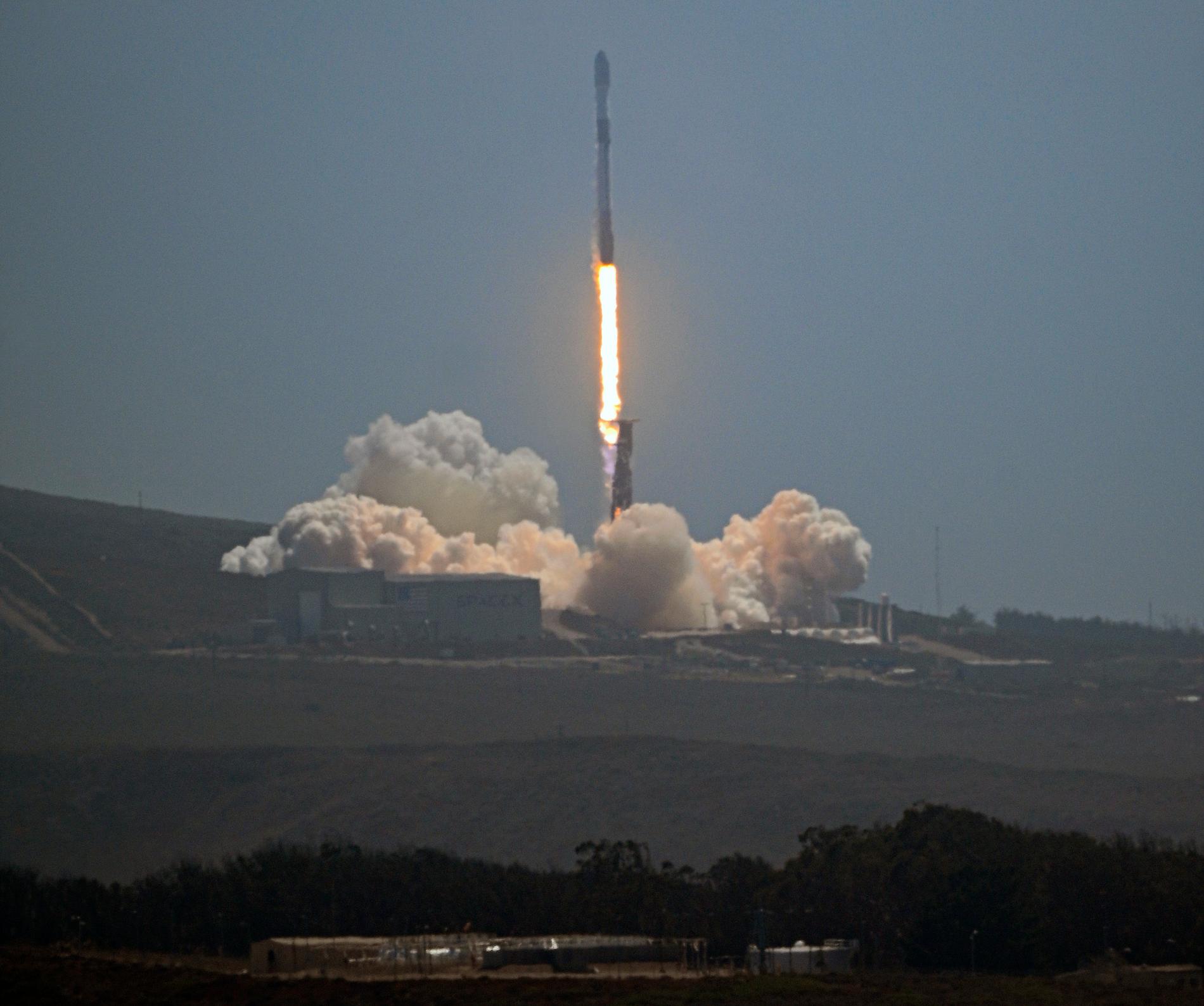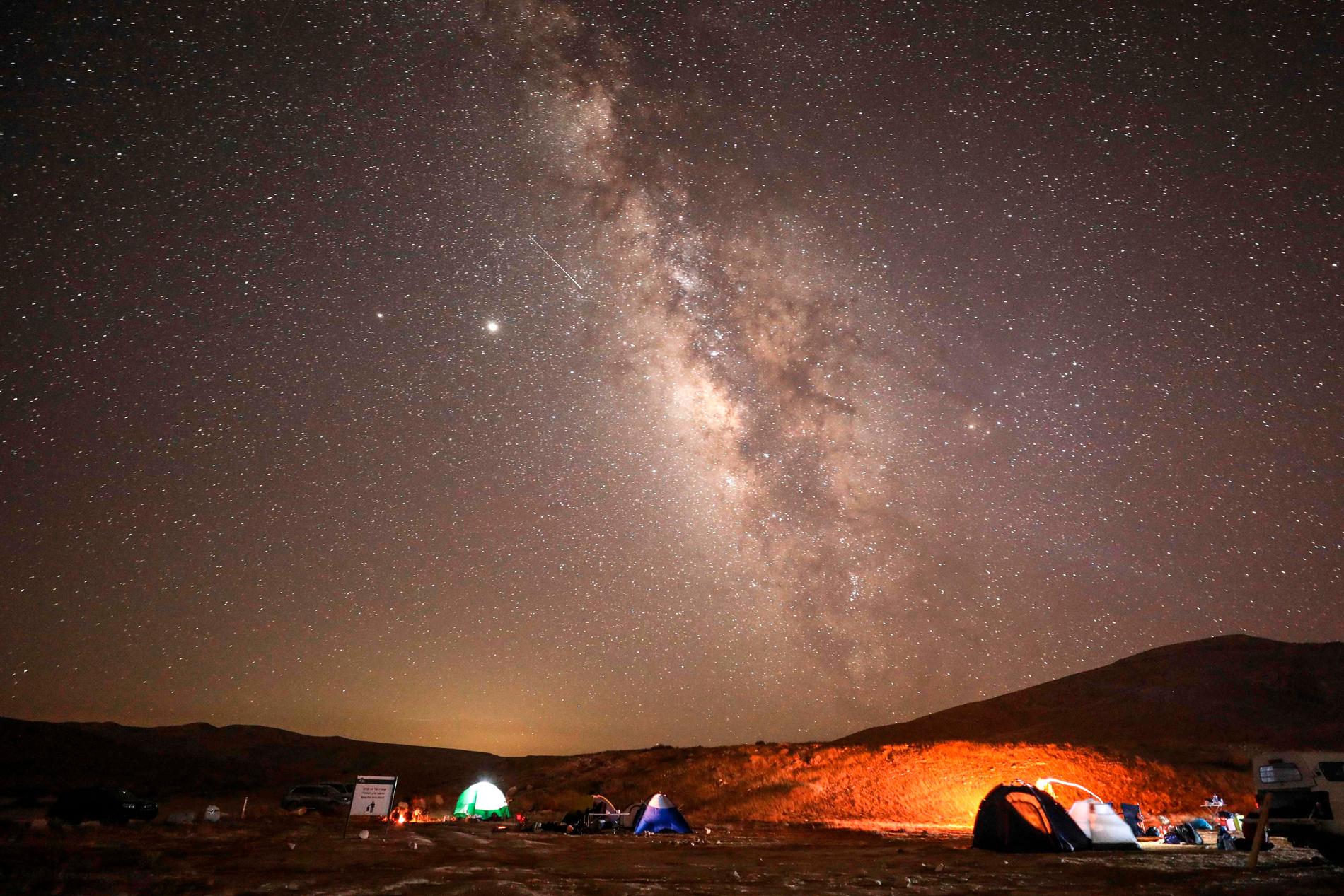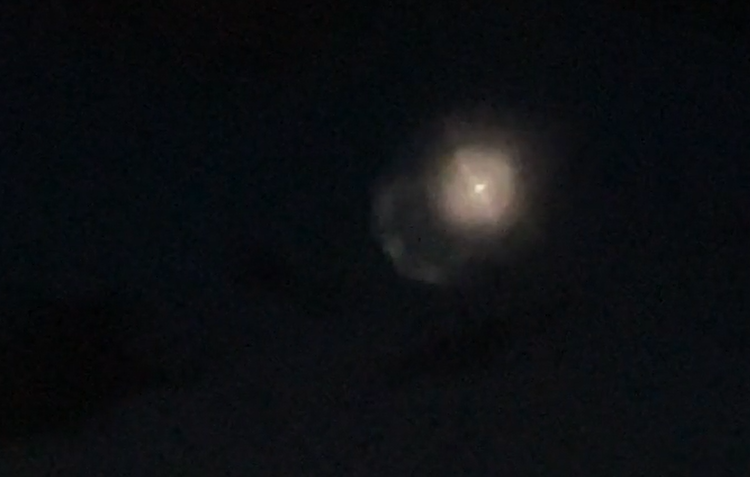In several places in the country, a spectacular light phenomenon has been observed on the night of Saturday. It is probably due to a space launch in the USA.
Updated just now
–
Last night VG received tips from readers in several places in the country about a light phenomenon in the night sky. Videos and photos submitted by readers show a large orb of light moving slowly across the sky.
The observations have come in from people as far north as Hemnes in Nordland to Kristiansand in Sørlandet. Several had made the trip out to look at shooting stars in connection with the Perseid meteor shower that passes over the Iodine.
Probably SpaceX rocket
The magazine Romfart describes the light phenomenon on its Facebook page on the night of Saturday. They believe the light may be due to a Space X launch that took place at 11.40pm Norwegian time – in California in the USA:
– A cloud of what was probably exhaust from the second stage of a Falcon 9 rocket was observed and photographed on the night of Saturday at 00:57, they write.
– It is very rare that this is observed from Norway, they add.
Also Swedish readers of Aftonbladet had caught on to the phenomenon of light. Space researcher Eric Stempels at Uppsala University also tells the newspaper that it is probably due to a rocket launch.
 –
–– It was a rocket launch. I am 100 percent sure, says Stempels.
– You see rocket fuel that creates a cloud of small particles that reflect the sunlight. It often looks like a funnel or a triangle.
Stempels also believes it is a question of the SpaceX rocket, which was supposed to take 46 satellites into orbit around the earth. Launches, he adds, happen all the time:
– Maybe once a month. But normally people lie down and sleep. Now many people were out to see the Perseids, he explains.
Norwegians on stargazing
The Perseid meteor shower lasts for around 20 days in July to August each year. According to the Great Norwegian Lexiconit is at its strongest around July 12 each year.
Southerner Adrian Jacobsen says that he was on a business trip on his way through Elverum, when he was going to watch shooting stars together with someone he was traveling with.
– We caught a glimpse of something in front of the windscreen. It had high and steady speed. Eventually it disappeared behind the clouds before it reappeared, he says, and continues:
– Then it started to get extremely bright, and it looked like it was going to explode. For us, it lit up the whole sky, says Jacobsen to VG on Friday night.
 –
–VG has been in contact with the police districts where the reports have come from. They have heard little about the phenomenon of light.
– I have not heard anything about it. We have a lot of phenomena on the ground, but none in the air, says operations manager Per Solberg in Innlandet police district to VG.
Do you remember this? In 2021, a meteor bump caused a stir in several places in the country.
In Agder, the police received one report about lights in the air:
– We received a message just before 02:00. The caller observed a white light crossing the sky. He didn’t hear any sound. The light went quite slowly, and he said it might seem like some smoke was coming out of it. It varied between shining clearly and indistinctly, and must have been visible for around three minutes, says operations manager Lars Hyberg in the Agder police district.
Both Oslo and Nordland police districts inform VG that they have not received any reports of such a phenomenon.
–


